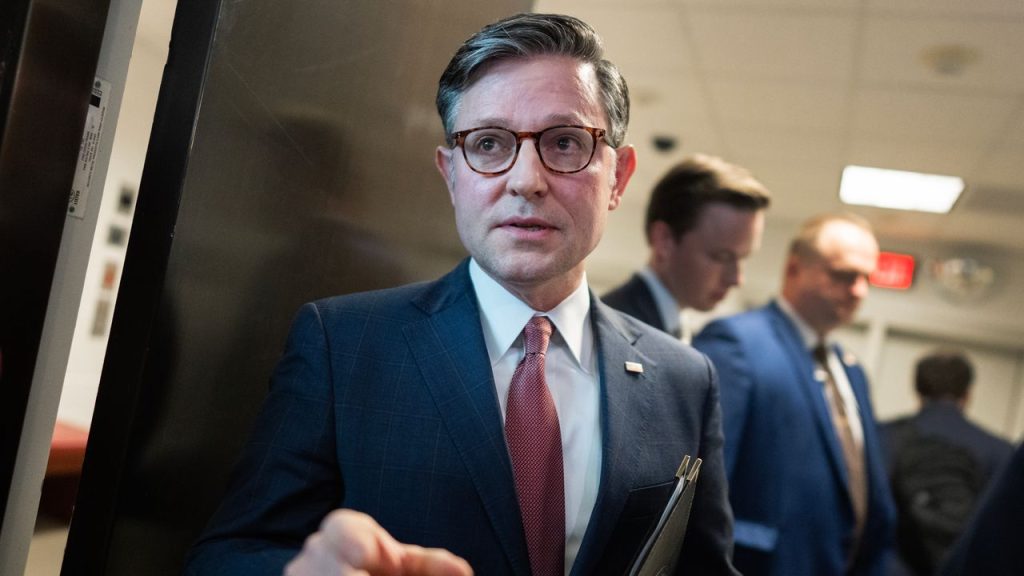“Ro and I carefully crafted this legislation so that the victims’ names will be redacted and that no child pornography will be released,” Massie said, adding, “they are hiding behind that. We’re trying to get justice for the victims and transparency for America. We’ve redacted things before. We don’t want to hurt the victims. We’re doing this for the victims.”
The differing answers from Johnson and Massie in one hour of MTP highlight the ongoing Republican infighting about when and how to release information about the Epstein investigation.
Much of that infighting is focused on what is best for the victims who were harmed by Epstein, his longtime associate Ghislaine Maxwell, and the myriad of men who played a role in their network of abuse. Victims who have, several times over several years, said how they feel.
Just earlier this month, four of Epstein’s victims spoke with NBC News, telling the network that “the Trump administration should be exposing any powerful men who shared Epstein’s penchant for vulnerable young women,” according to reporting from Adam Reiss and Corky Siemaszko.
Danielle Bensky, now 38, was a budding ballerina when she said Epstein abused her two decades ago. She told NBC that with “what’s happening now,” it feels like the victims are “being erased.”
Bensky said she felt a “wave of sadness” when Bondi, after claiming she had Epstein’s “list” on her desk in February, noted in a DOJ memo, filed July 7, that they had no evidence implicating other people in Epstein’s crimes and no evidence that he had been killed.
“All those years of trying to gain justice just negated. It was just two pages saying they were done investigating with no details about what happened to all of us,” Bensky said. “It’s like we never existed.”
Teresa J. Helm, another one of Epstein’s victims, said that Epstein’s continued appearance in the news has reignited the trauma, telling NBC in an email that “trauma is never a one-and-done.”
“When a person’s abuser(s) are repeatedly flashed in view at any given moment, and especially when promises of justice, and promises of structures of power finally being held to account,” she wrote, adding, “to then essentially have the door shut in your face and no longer open for business — then what?”
Annie Farmer, another one of Epstein’s accusers, told BBC News this week that she, too, wants more information. Annie and her sister Maria made the earliest known reports of abuse by Epstein to the NYPD and the FBI in 1996.
“It’s an emotional rollercoaster for the people involved,” Farmer said, noting that they had hoped “more information could be coming.”


